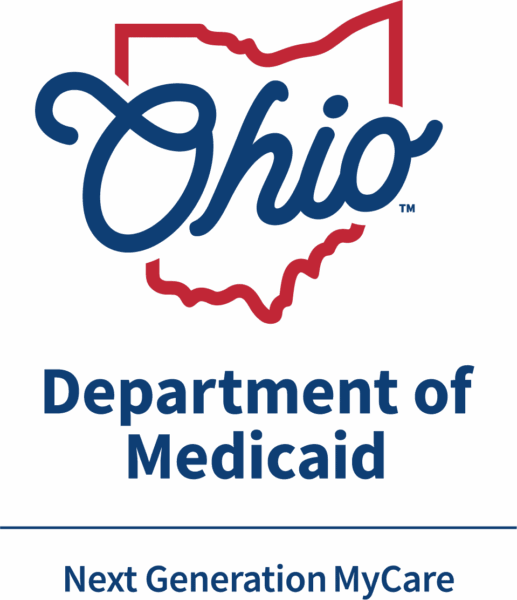What is Adult Foster Care?
Adult foster care is a type of long-term care that provides housing and support for adults who need assistance with daily living activities. This care is typically provided in a private home setting, where trained caregivers offer personalized support to residents. Unlike larger institutions, AFC homes usually accommodate a small number of residents, ensuring a more intimate and family-like environment.
In different states, the program may be referred to by other names while offering similar services. For example, in Massachusetts, it is known as Adult Foster Care (AFC), in Connecticut, it is called Adult Family Living (AFL), and in Indiana and Georgia, it is referred to as Structured Family Caregiving (SFC). While the names vary, the core mission remains the same: providing compassionate, home-like care for individuals who need daily support. If you’re searching for care options, be sure to explore these state-specific programs to find the right fit for your loved one.
AFC is ideal for individuals who:
- Are elderly and need assistance with daily activities but don’t require full-time nursing care
- Have physical or developmental disabilities and need structured support
- Have chronic medical conditions that make independent living challenging
- Prefer a more home-like environment over institutional care

What Type of Tasks Can Adult Foster Care (AFC) Help With?
Adult Foster Care (AFC) provides personalized support for individuals who need assistance with daily activities but do not require the intensive medical care of a nursing home. The level of care depends on each individual’s needs, but typical AFC services include:
Assistance with Activities of Daily Living (ADLs)
AFC caregivers help residents with essential self-care tasks, such as:
- Bathing and personal hygiene – Assistance with bathing, grooming, and dressing.
- Mobility support – Helping individuals move around safely, including transfers from bed to wheelchair.
- Toileting and incontinence care – Ensuring comfort and hygiene for those needing assistance.
- Eating and meal preparation – Preparing nutritious meals and assisting those who have difficulty eating independently.
Medication Management
Caregivers ensure residents take their medications as prescribed by:
- Administering or reminding them to take medications on time.
- Monitoring for side effects and potential interactions.
- Coordinating with healthcare providers for prescription refills.
Household and Daily Living Support
AFC homes provide a structured, clean, and safe environment by assisting with:
- Housekeeping – Light cleaning, laundry, and home organization.
- Grocery shopping and meal planning – Ensuring residents have healthy and appropriate food options.
- Transportation – Providing rides to medical appointments, errands, and community activities.
Social and Emotional Support
AFC promotes a sense of belonging and mental well-being through:
- Companionship – Preventing loneliness by engaging in conversation and activities.
- Recreational activities – Encouraging hobbies, games, and outings to keep residents active.
- Emotional support – Helping residents cope with stress, anxiety, or depression.
Safety and Supervision
AFC caregivers ensure a secure environment by:
- Preventing falls and injuries.
- Monitoring health conditions and reporting any concerns to medical professionals.
- Ensuring the home is adapted to the resident’s mobility and health needs.
How Adult Foster Care Differs from Other Care Options
Many people confuse AFC with assisted living or nursing home care, but there are key differences:
- Nursing Homes: Provide 24/7 medical supervision, which is necessary for individuals with severe health conditions. AFC is a less intensive care option.
- Assisted Living Facilities: Offer private or shared apartments with access to common areas, but residents may not receive as much one-on-one attention as they would in an AFC home.
- In-Home Care: Allows individuals to stay in their own homes with visiting caregivers, but may not be feasible if round-the-clock care is needed.
AFC fills the gap between assisted living and home care, offering a structured yet home-like setting with personalized attention.
How Adult Foster Care Works
Adult foster care is based on a small-group living arrangement, where individuals receive personal care and support in a home environment.
Living Arrangements
AFC homes vary in size, but most accommodate between 1 to 5 residents. The home is managed by a licensed caregiver or a family that has undergone training to provide proper care. Each resident typically has their own bedroom, but some homes offer shared rooms.
Role of Caregivers
Caregivers in AFC homes provide:
- Assistance with activities of daily living (ADLs), such as bathing, dressing, and eating
- Medication management
- Meal preparation and nutrition planning
- Transportation to medical appointments
- Emotional and social support
- Household chores and maintenance
State Regulations and Licensing
Each state has its own set of regulations governing AFC homes to ensure the safety and well-being of residents. Licensing requirements often include background checks for caregivers, training in first aid and medication management, and regular home inspections.
Before choosing an AFC home, it’s important to verify that the provider is properly licensed and meets all state requirements.

Benefits of Adult Foster Care
Adult foster care offers many advantages over other care options, making it an appealing choice for families looking for personalized support for their loved ones.
Home-Like Environment
One of the most significant benefits of AFC is that it provides a cozy, family-oriented setting instead of an institutional atmosphere. This environment can help reduce feelings of loneliness and depression, which are common in larger facilities.
Personalized Care
Because AFC homes serve only a few residents, caregivers can provide more individualized attention. This ensures that each resident’s unique needs are met, whether it’s assistance with mobility, medication reminders, or companionship.
Cost-Effective Alternative
Compared to nursing homes and assisted living facilities, AFC is often more affordable. Many AFC programs are covered by Medicaid, and some states offer financial assistance for eligible individuals.
Independence and Dignity
Residents in AFC homes often retain more independence than those in nursing homes. They can participate in household activities, maintain personal routines, and engage in social interactions with other residents and caregivers.
Stronger Caregiver-Resident Relationships
Because caregivers in AFC homes work with a small group of residents, they develop close relationships with those in their care. This creates a sense of trust and security, improving overall well-being.
How Much Does Adult Foster Care Cost?
The cost of adult foster care varies based on location, the level of care required, and the specific services provided. Generally, adult foster care is more affordable than assisted living and significantly less expensive than nursing home care, making it a cost-effective alternative for families seeking a supportive environment for their loved ones.
According to Genworth’s 2016 Cost of Care Survey, the average monthly cost of assisted living is $3,628. While the survey does not include specific data on adult foster care, most AFC homes typically charge between $1,500 and $3,500 per month, depending on the state and level of care needed. Some states offer Medicaid or Medicare assistance to help cover these costs, and non-Medicaid-based assistance programs may provide additional support, ranging from $200 to $1,200 per month.
At FreedomCare, we specialize in helping families navigate their home care options. If you’re wondering whether a family member qualifies to provide care for a loved one and receive financial assistance, we can help you determine eligibility and explore available programs.
Eligibility and Admission Process for Adult Foster Care
Not everyone qualifies for adult foster care, as eligibility requirements vary by state and program.
Who Qualifies for Adult Foster Care?
Individuals who may qualify include:
- Seniors who need assistance with daily tasks but do not require skilled nursing care
- Adults with disabilities who require a structured living environment
- People recovering from medical conditions who need temporary support
Application and Assessment
The admission process typically includes:
- Medical and Functional Assessment – A healthcare provider assesses the individual’s medical needs and ability to perform daily tasks.
- Financial Evaluation – If Medicaid assistance is needed, the individual must meet income and asset requirements.
- Home Visit – The prospective resident and their family may visit AFC homes to determine the best fit.
Medicaid and Financial Assistance
Many states provide Medicaid funding for AFC programs, covering room, board, and personal care services. Some families may also use private funds, long-term care insurance, or veterans’ benefits to cover costs.
Challenges and Considerations
While adult foster care is an excellent option for many, there are a few challenges to consider:
- Limited Availability – AFC homes are not as widespread as nursing homes or assisted living facilities, making it harder to find openings.
- Finding the Right Fit – Since AFC homes have small resident populations, it’s crucial to find a home that aligns with your loved one’s personality, lifestyle, and care needs.
- Ensuring Quality Care – While most AFC providers are dedicated and well-trained, it’s important to research and visit multiple homes before making a decision.
How to Find an Adult Foster Care Provider
If you’re considering AFC for a loved one, here are some steps to find a reputable provider:
- Check State and Local Resources – Many states have directories of licensed AFC homes. You can also check with local aging services agencies.
- Ask for Recommendations – Speak with healthcare providers, social workers, and community organizations.
- Visit Homes in Person – Take a tour of the home, meet caregivers, and observe the environment.
- Ask Key Questions:
- What is the caregiver-to-resident ratio?
- How are medical emergencies handled?
- Are meals and dietary preferences accommodated?
- What social and recreational activities are offered?
Is Adult Fost Care Available at Home?
Adult foster care is typically provided in a licensed residential home where caregivers support a small group of residents. However, some programs offer in-home adult foster care services, allowing individuals to receive similar levels of assistance while remaining in their own homes. In these cases, a trained caregiver—often a family member—provides daily care under state-approved guidelines. Certain Medicaid programs, such as Personal Care Assistance (PCA) or Home and Community-Based Services (HCBS) waivers, may help cover the costs of in-home care. If you’re considering adult foster care at home, it’s essential to check state-specific regulations and funding options to determine eligibility and available support.
Conclusion
Adult foster care provides a compassionate, home-like alternative to nursing homes and assisted living facilities. With personalized attention, a close-knit environment, and financial assistance options, AFC can be a perfect solution for individuals needing daily support while maintaining independence.
At FreedomCare, we believe that every individual deserves the best possible care tailored to their needs. Whether you’re exploring AFC for yourself or a loved one, our team is here to help you navigate the options and find a solution that ensures comfort, dignity, and peace of mind.
Looking for more information on adult foster care or other home care options? FreedomCare can help determine if a family member qualifies to provide care for a loved one—and even get paid for it—while ensuring their loved one receives the best possible support in a comfortable, familiar environment. Contact FreedomCare today to learn more about personalized care solutions and financial assistance options.








